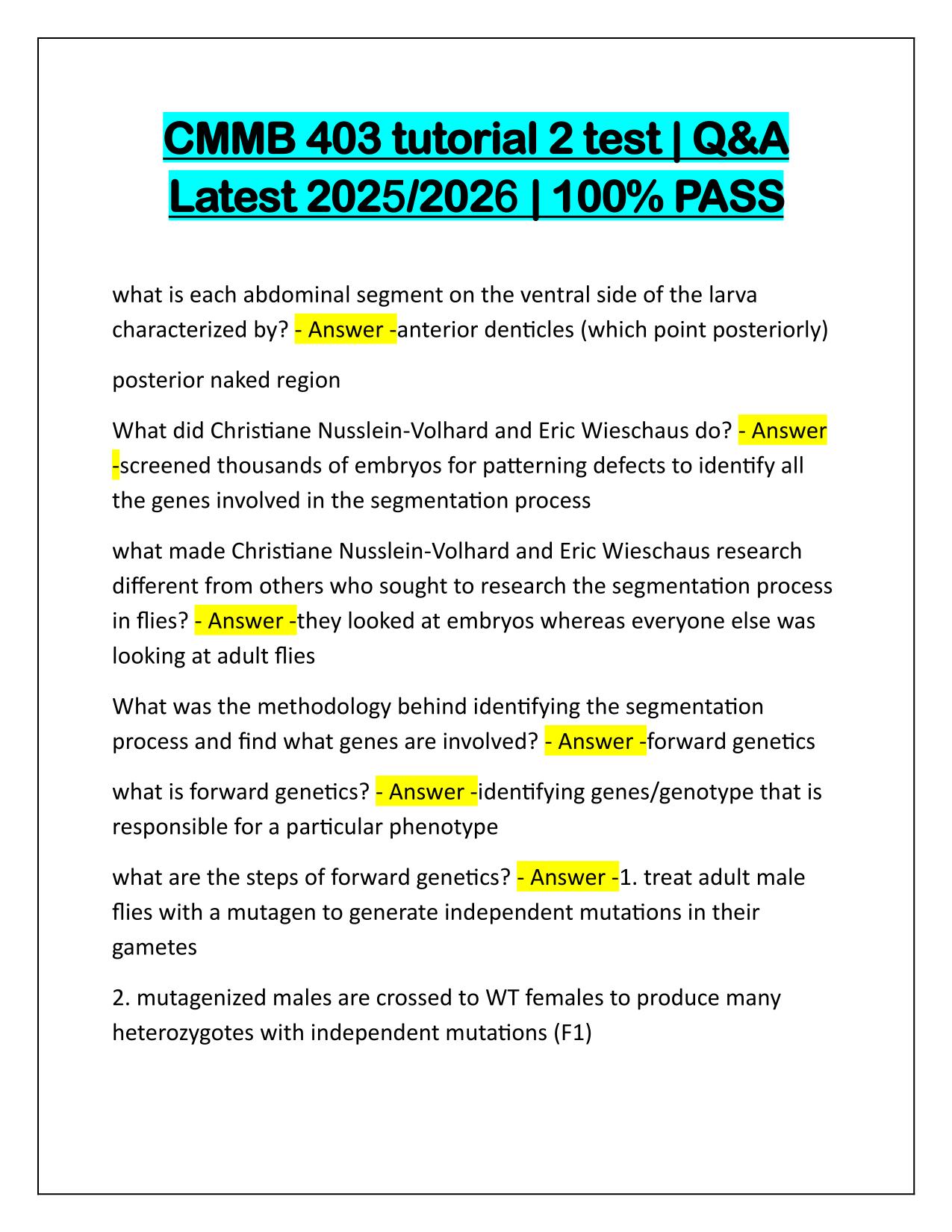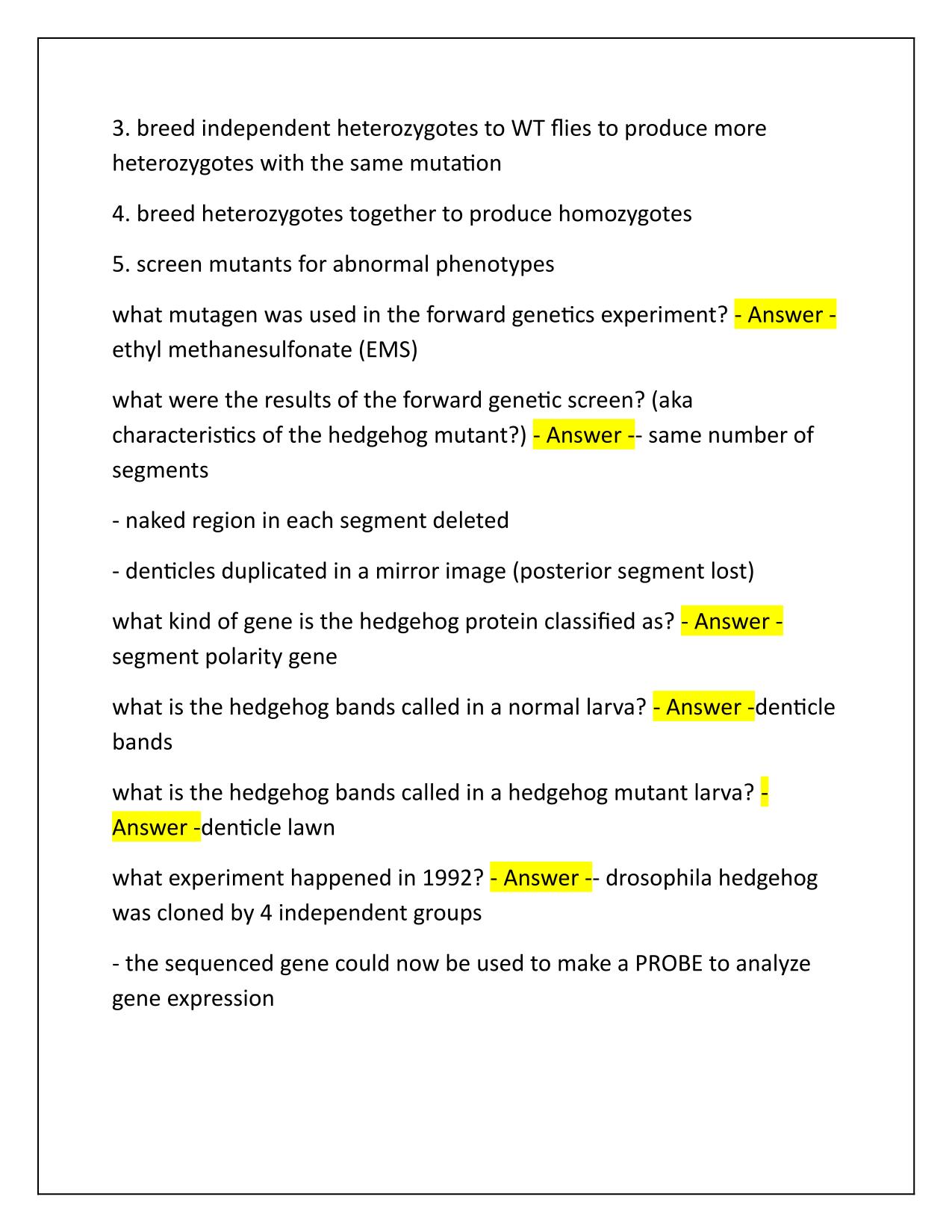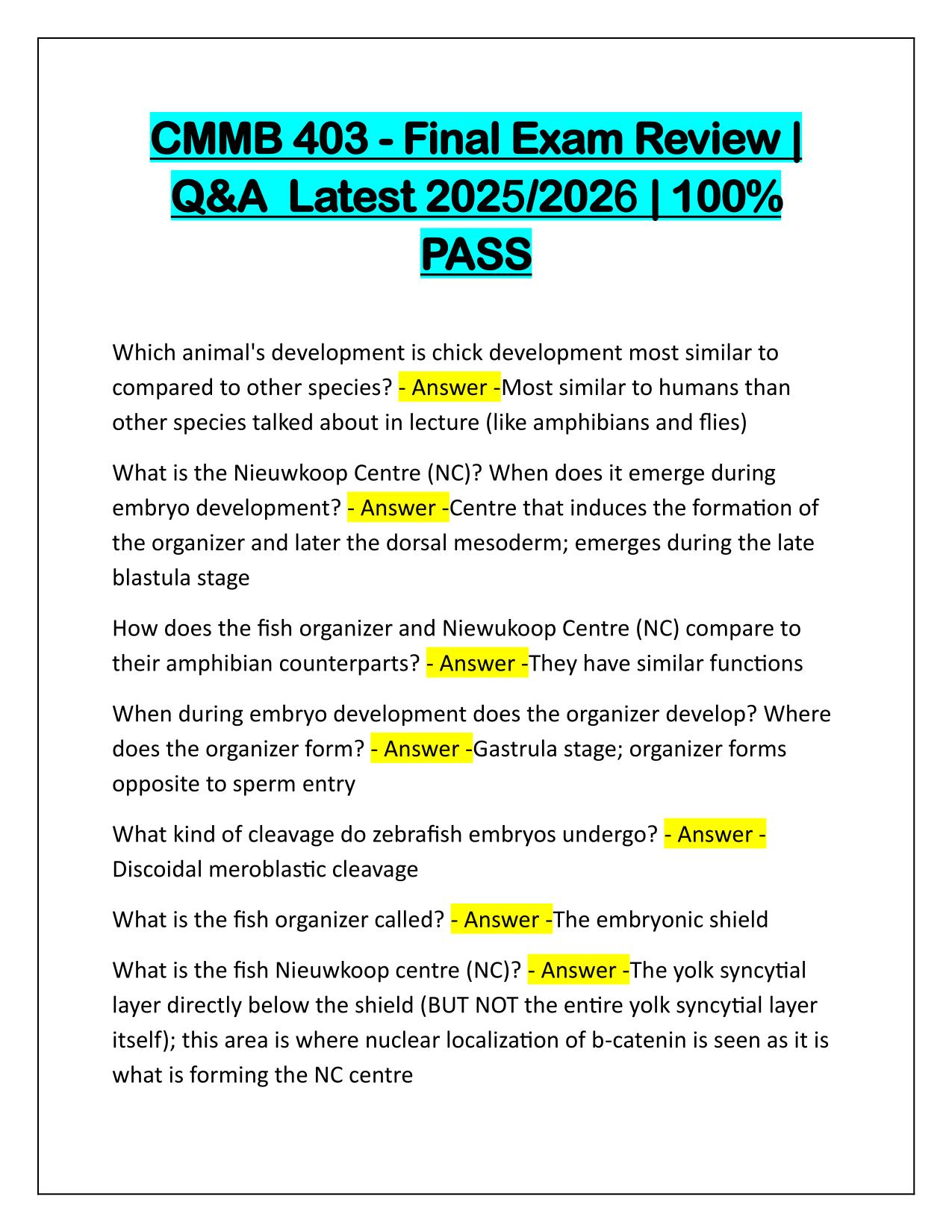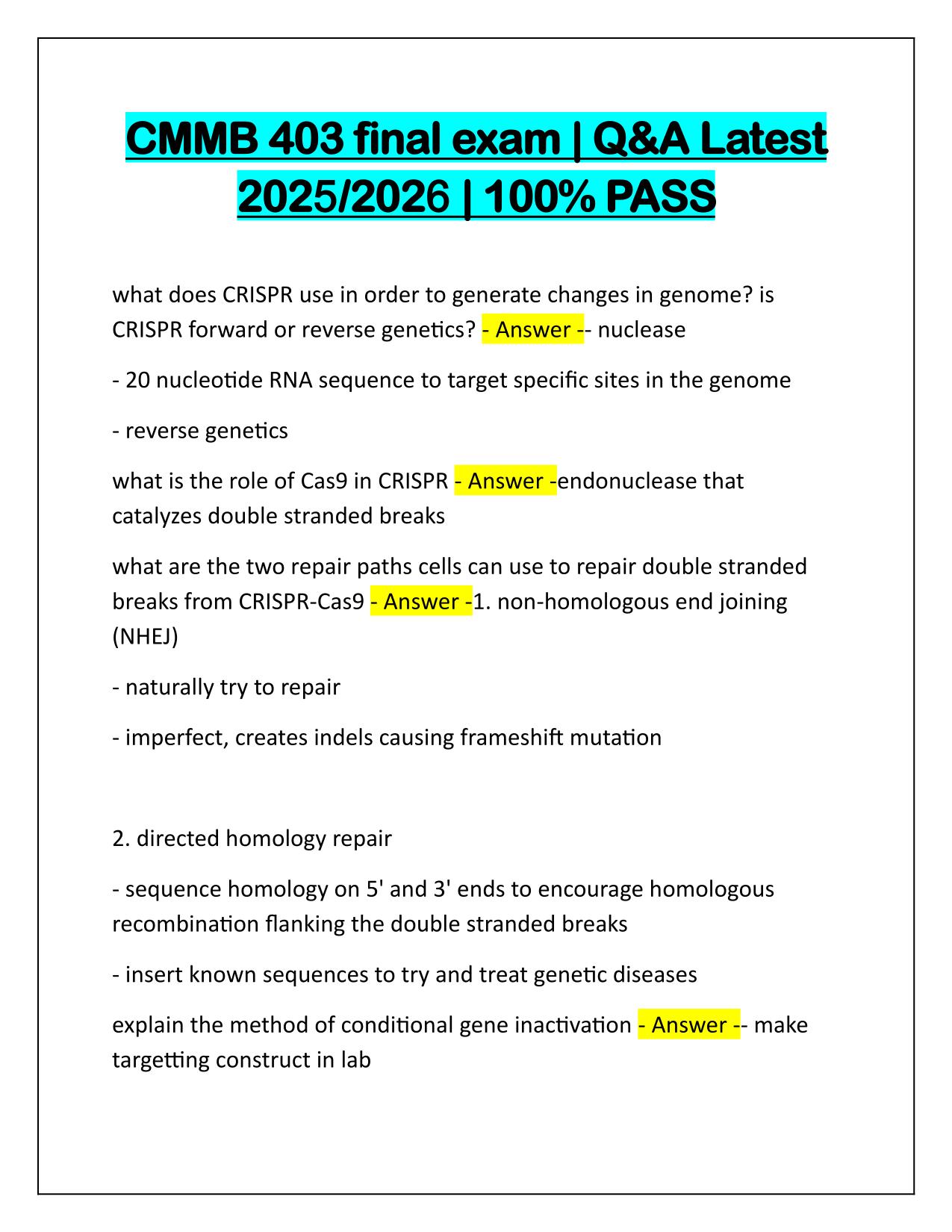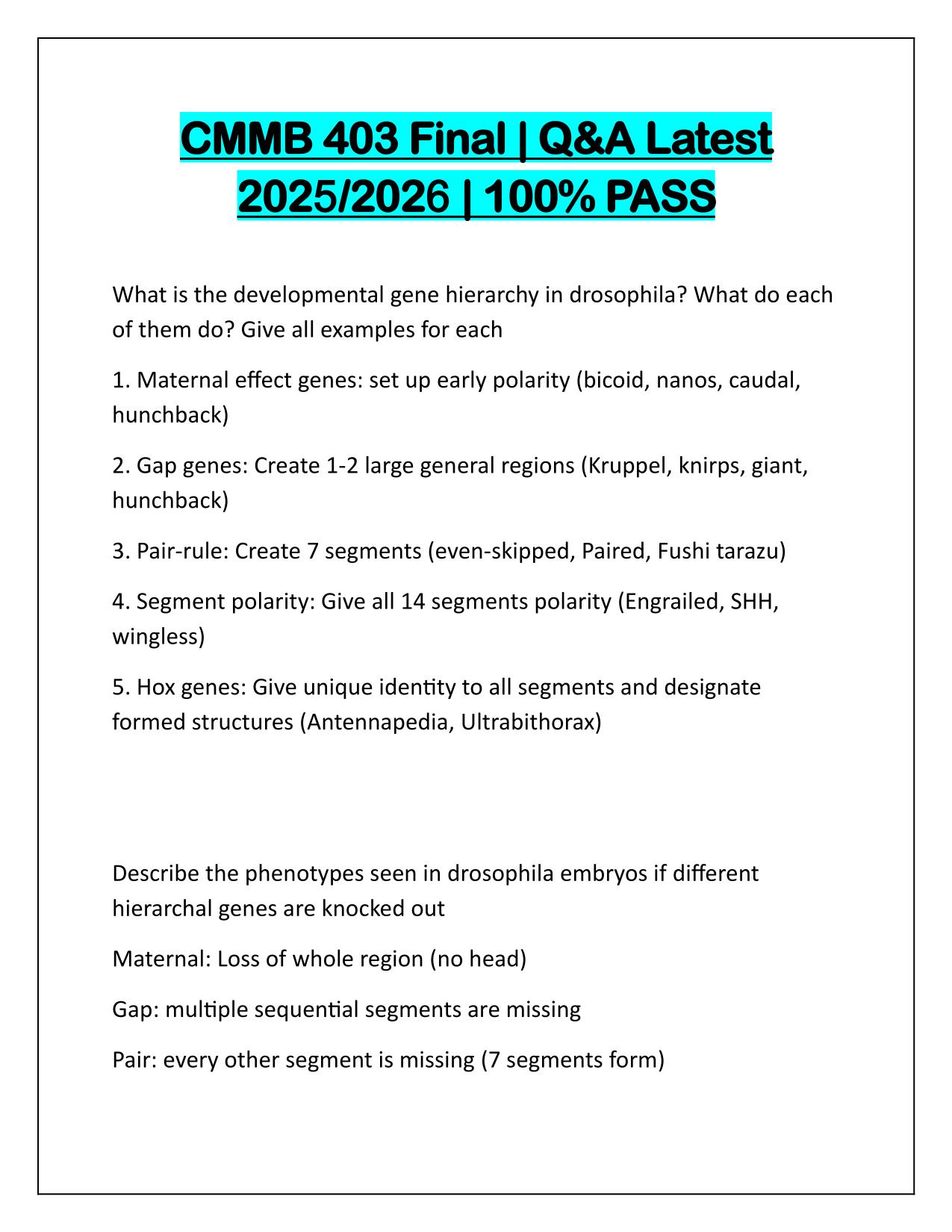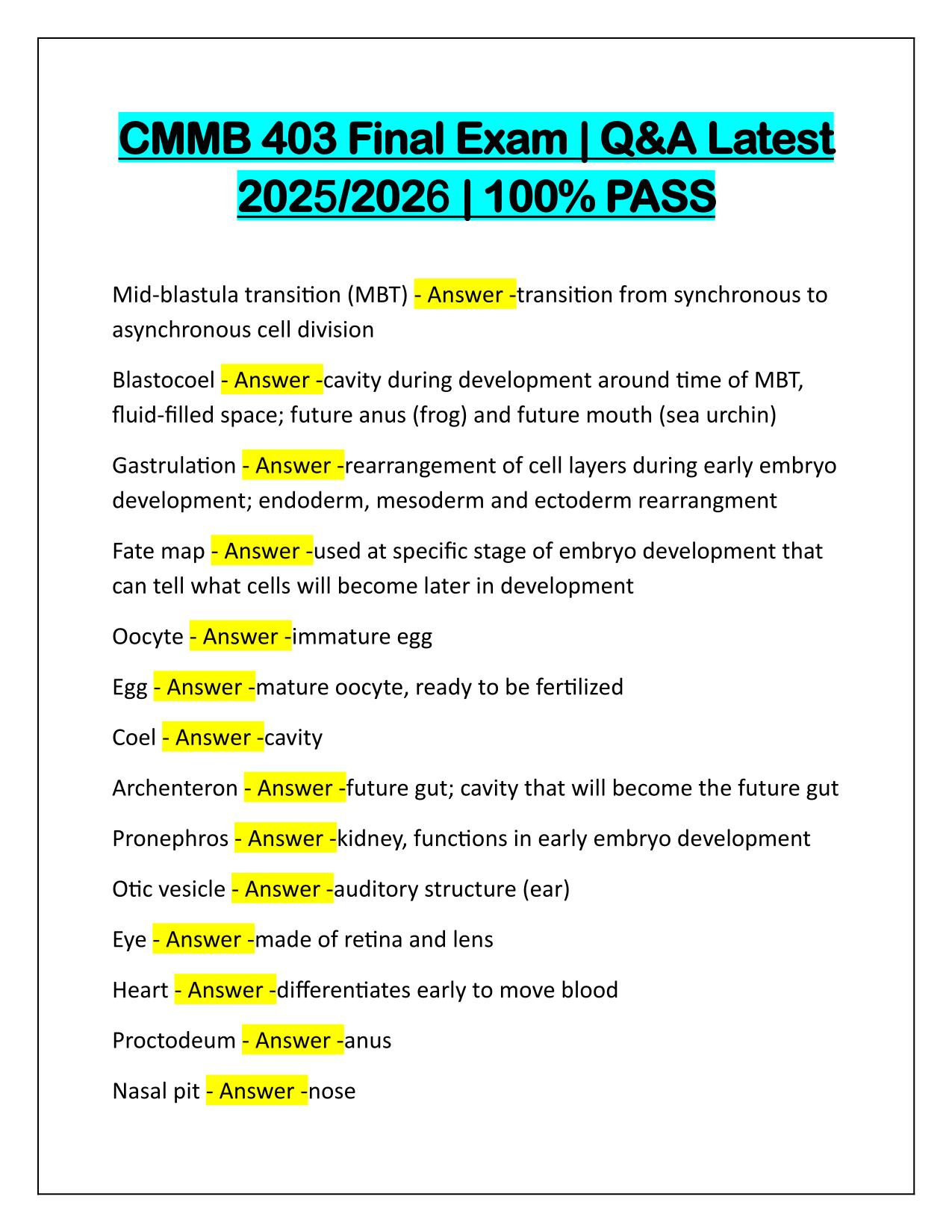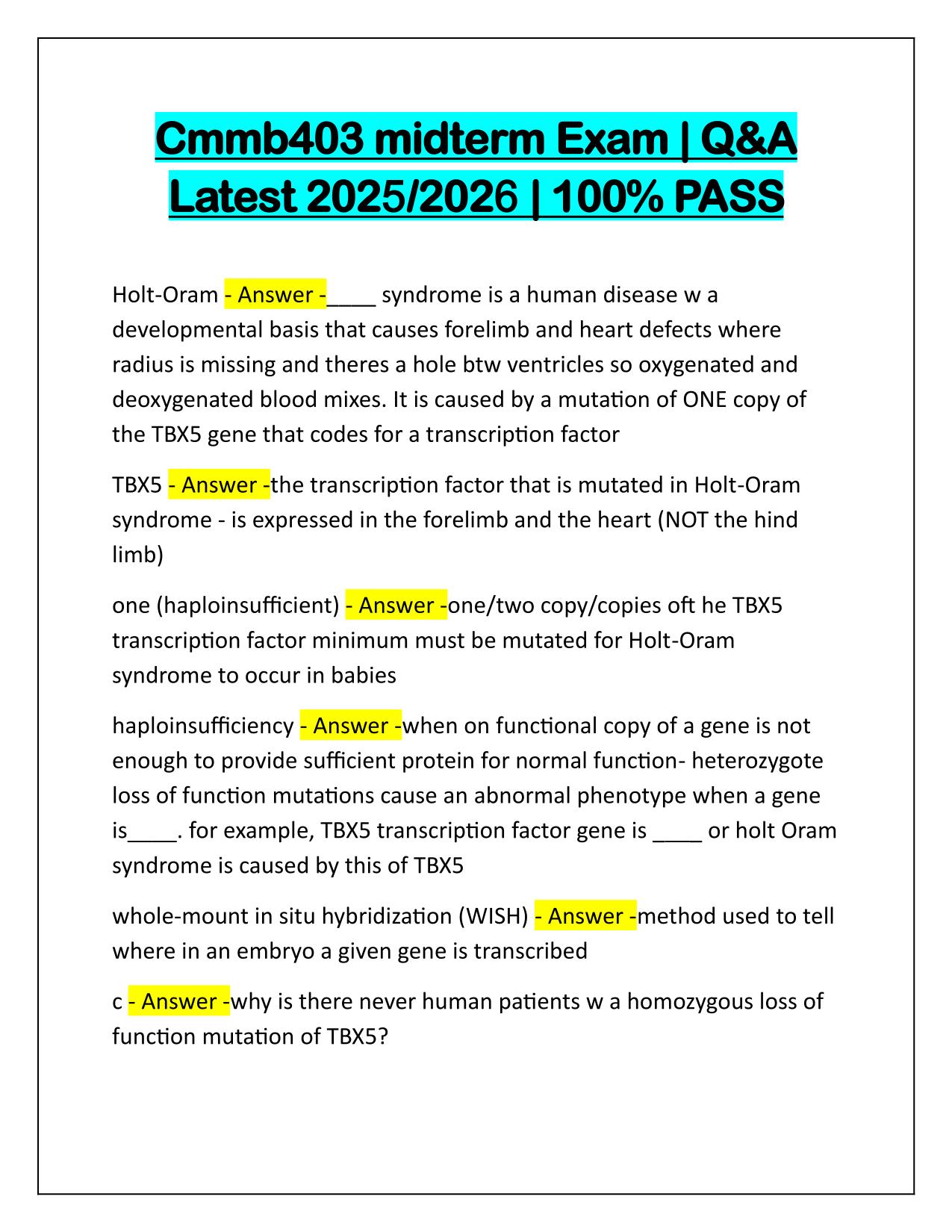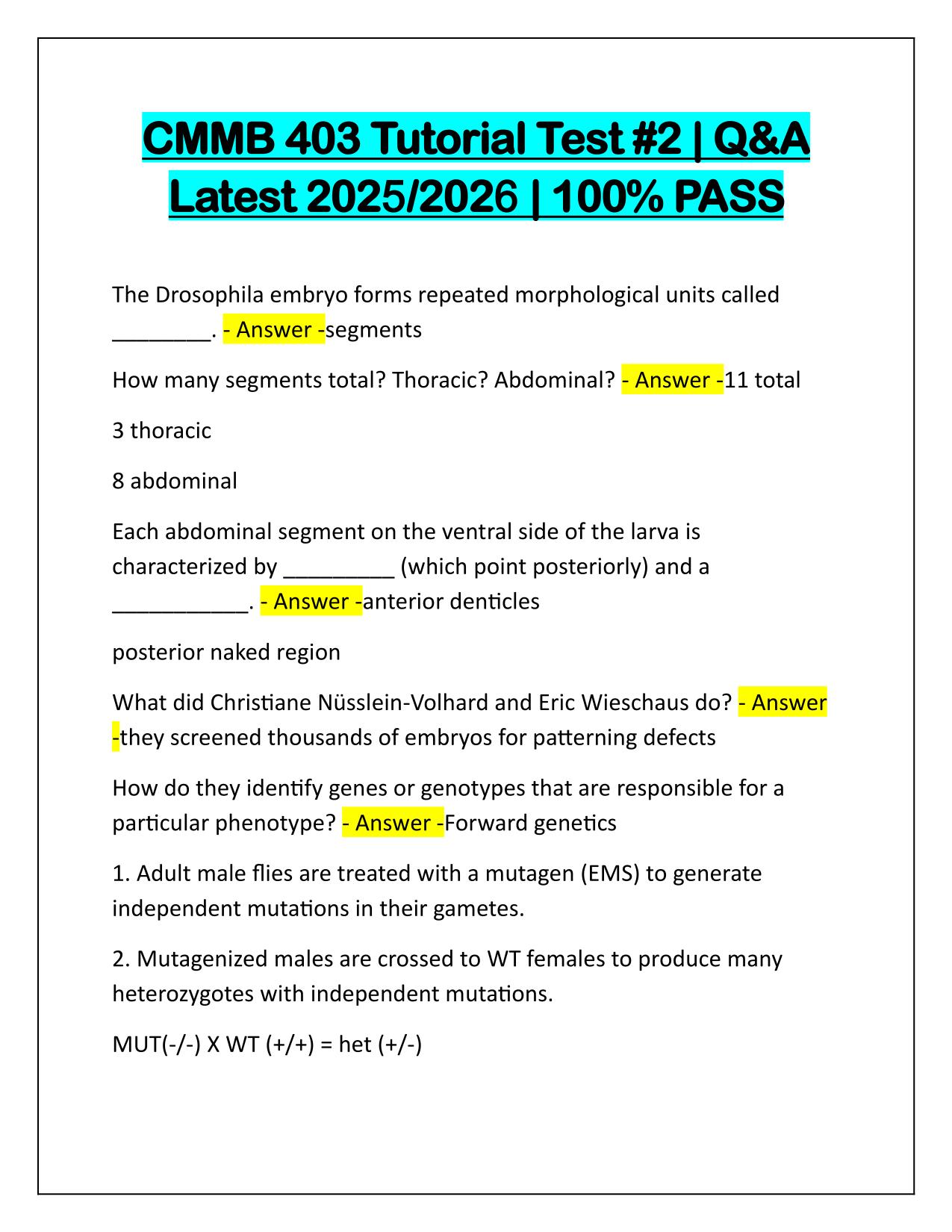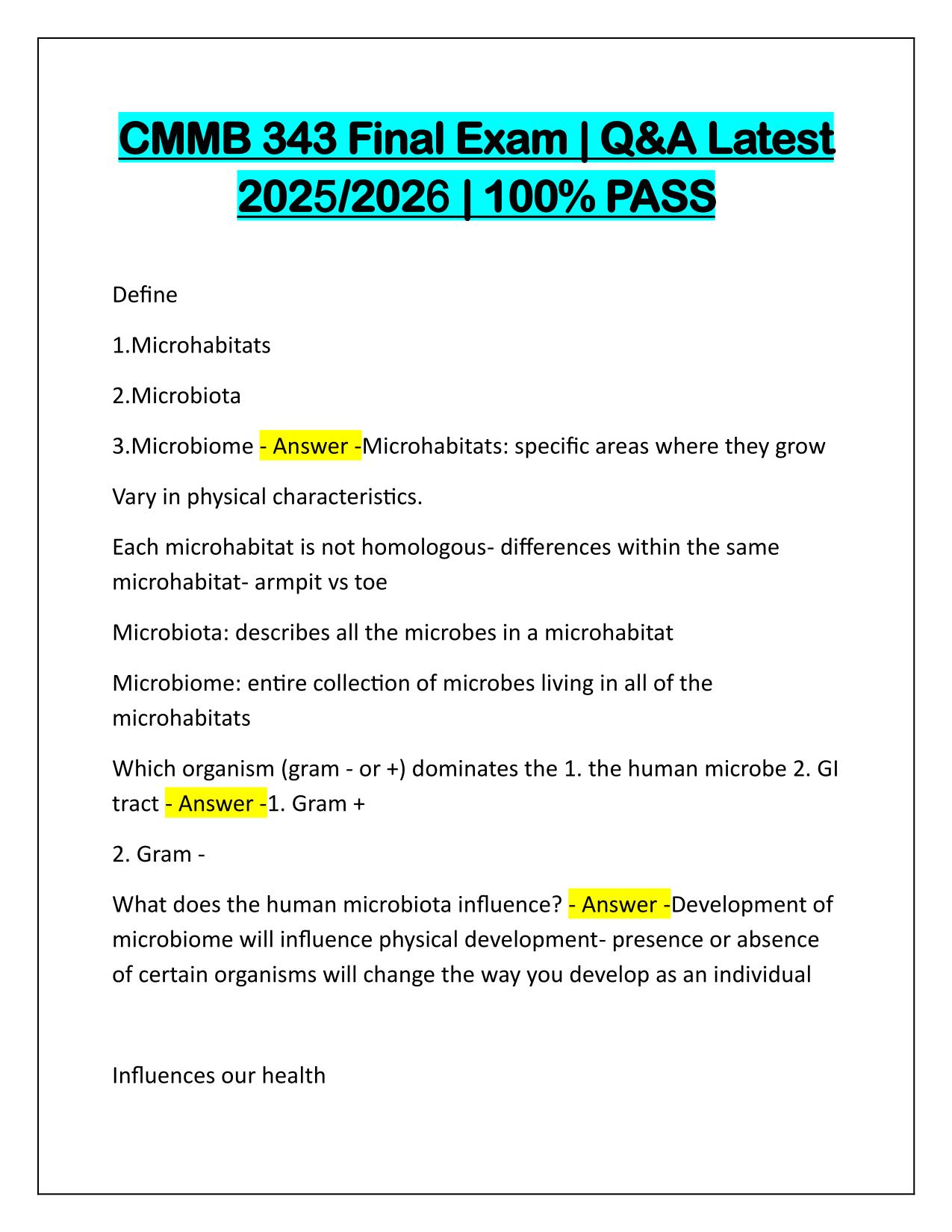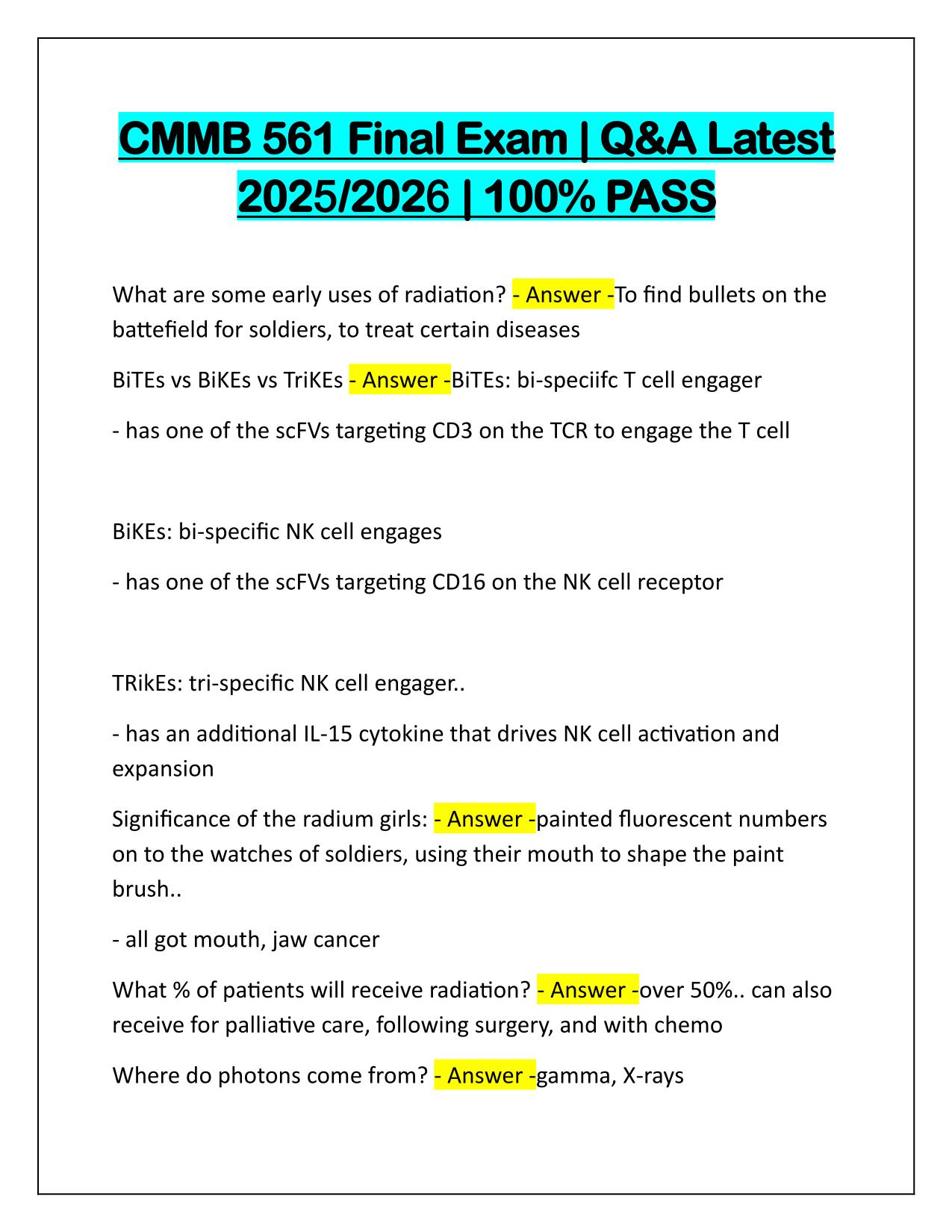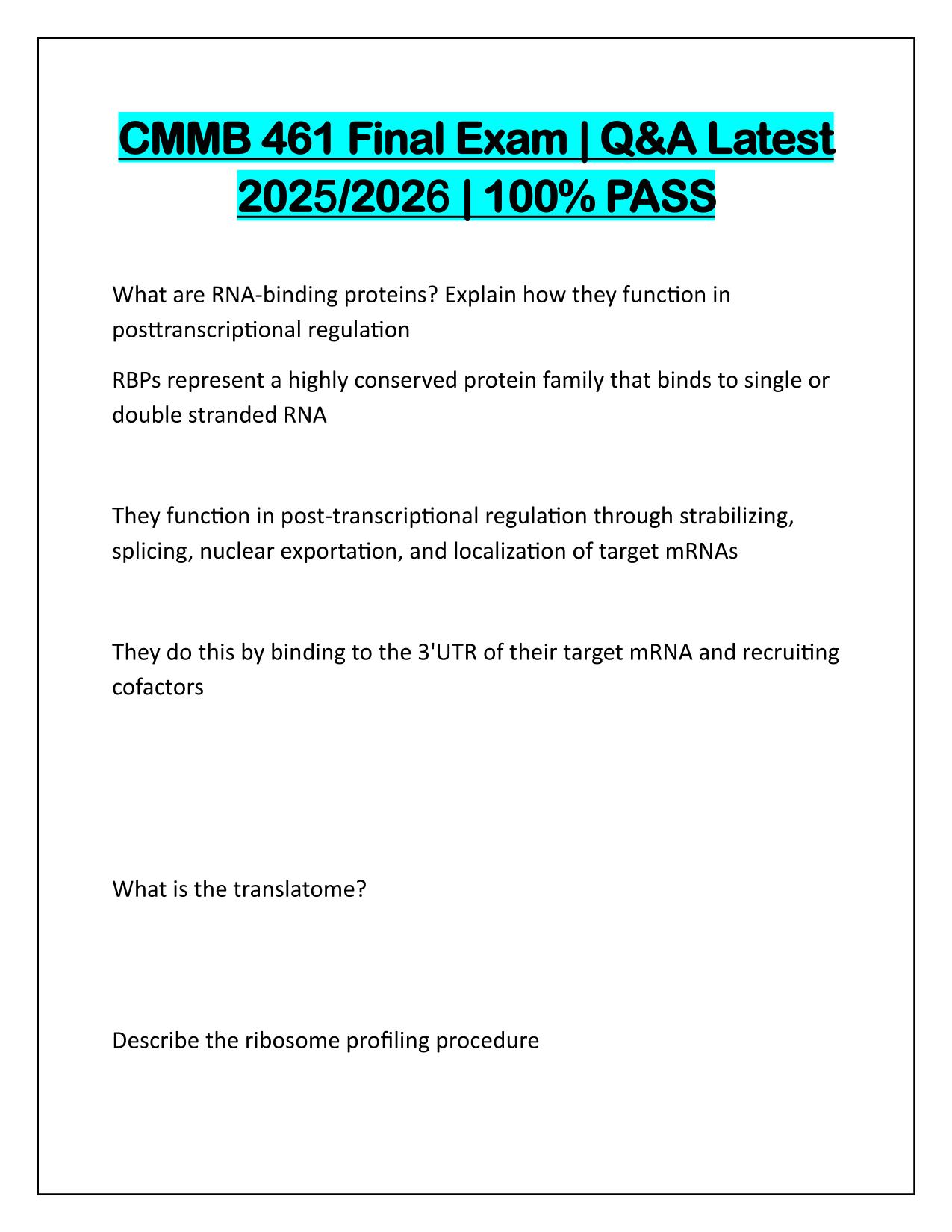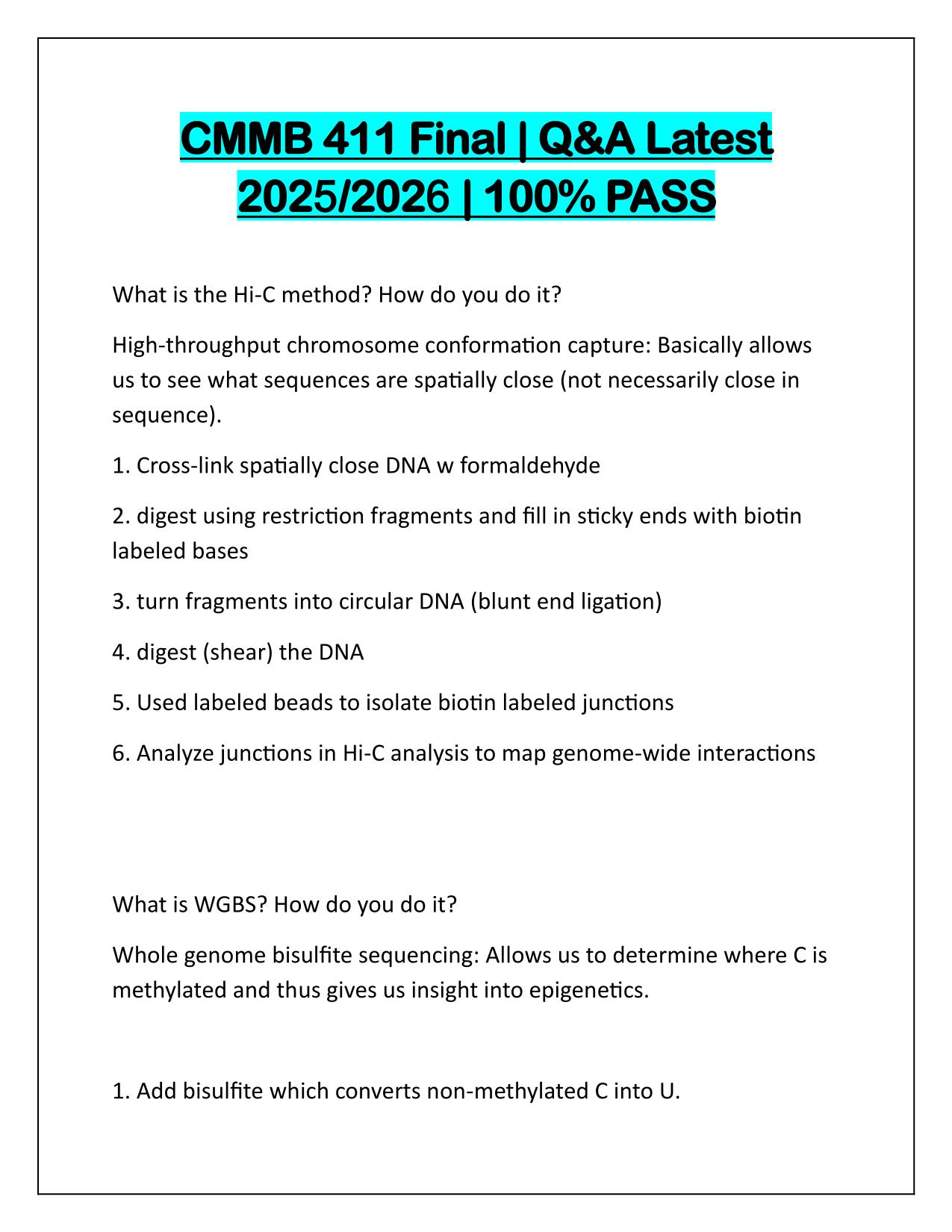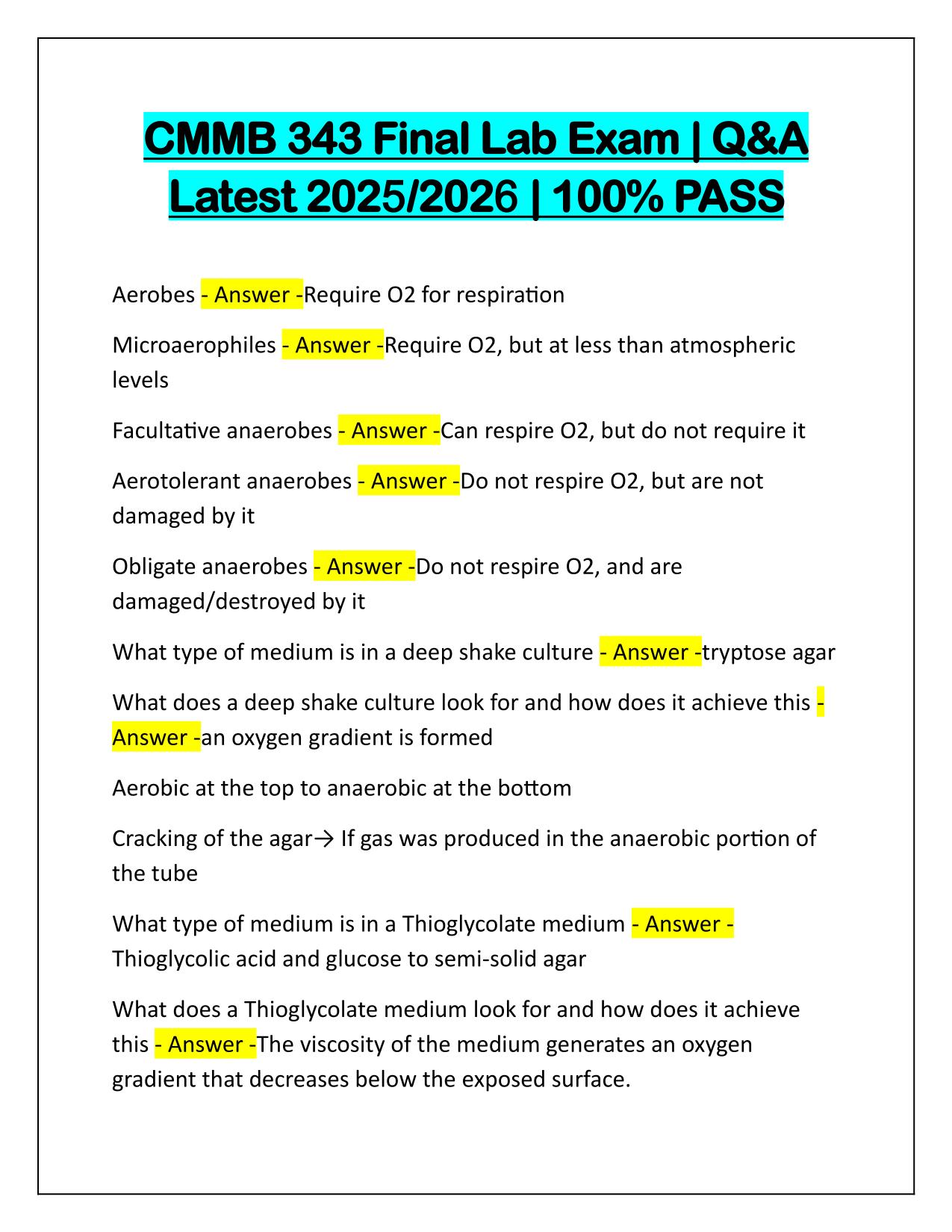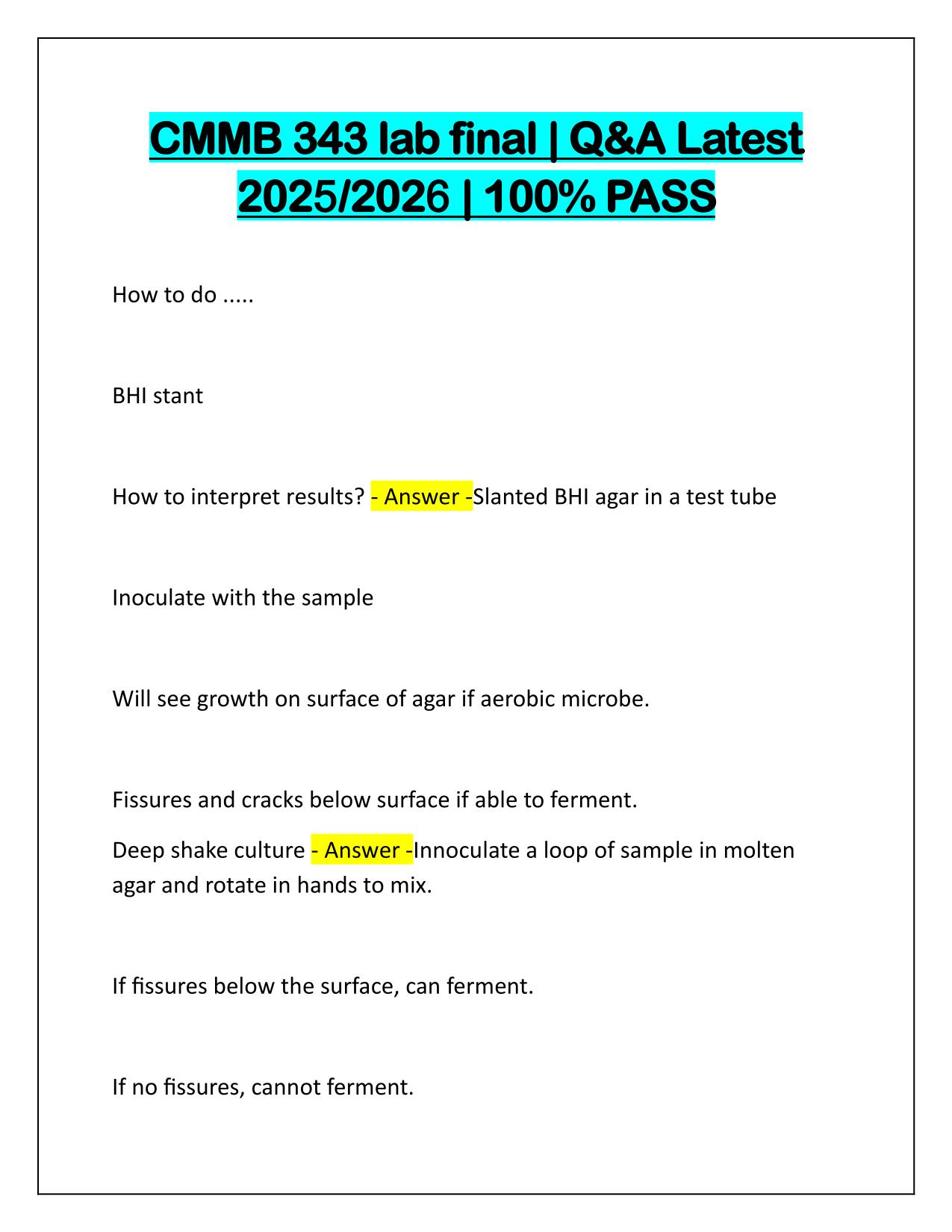CMMB 403 tutorial 2 test Q&A Latest Update
Course:
CMMB
Institution:
CMMB
CMMB 403 tutorial 2 test Q&A Latest Update
After purchase, you get:
✅ Instant PDF Download
✅ Verified answer explanations
✅ Refund if not Satisfied
✅ Prepared for 2025/2026 test cycle
Document Information
| Uploaded on: | May 2, 2025 |
| Last updated: | May 12, 2025 |
| Number of pages: | 15 |
| Written in: | 2025/2026 |
| Type: | Exam (elaborations) |
| Contains: | Questions & Answers |
| Tags: | CMMB 403 tutorial 2 test Q&A Latest Update |
Seller Information

AdelineJean
User Reviews (0)
Exam (Elaborations)
$9.00
Bundle Deal! Get all 13 docs for just $22.50
Add to Cart
100% satisfaction guarantee
Refund Upon dissatisfaction
Immediately available after purchase
Available in Both online and PDF
$9.00
| 0 sold
Discover More resources
Available in a Bundle
Content Preview
CMMB 403 tutorial 2 test | Q&A Latest 2025/2026 | 100% PASS what is each abdominal segment on the ventral side of the larva characterized by? - Answer -anterior denticles (which point posteriorly) posterior naked region What did Christiane Nusslein-Volhard and Eric Wieschaus do? - Answer -screened thousands of embryos for patterning defects to identify all the genes involved in the segmentation process what made Christiane Nusslein-Volhard and Eric Wieschaus research different from others who sought to research the segmentation process in flies? - Answer -they looked at embryos whereas everyone else was looking at adult flies What was the methodology behind identifying the segmentation process and find what genes are involved? - Answer -forward genetics what is forward genetics? - Answer -identifying genes/genotype that is responsible for a particular phenotype what are the steps of forward genetics? - Answer -1. treat adult male flies with a mutagen to generate independent mutations in their gametes 2. mutagenized males are crossed to WT females to produce many heterozygotes with independent mutations (F1)
